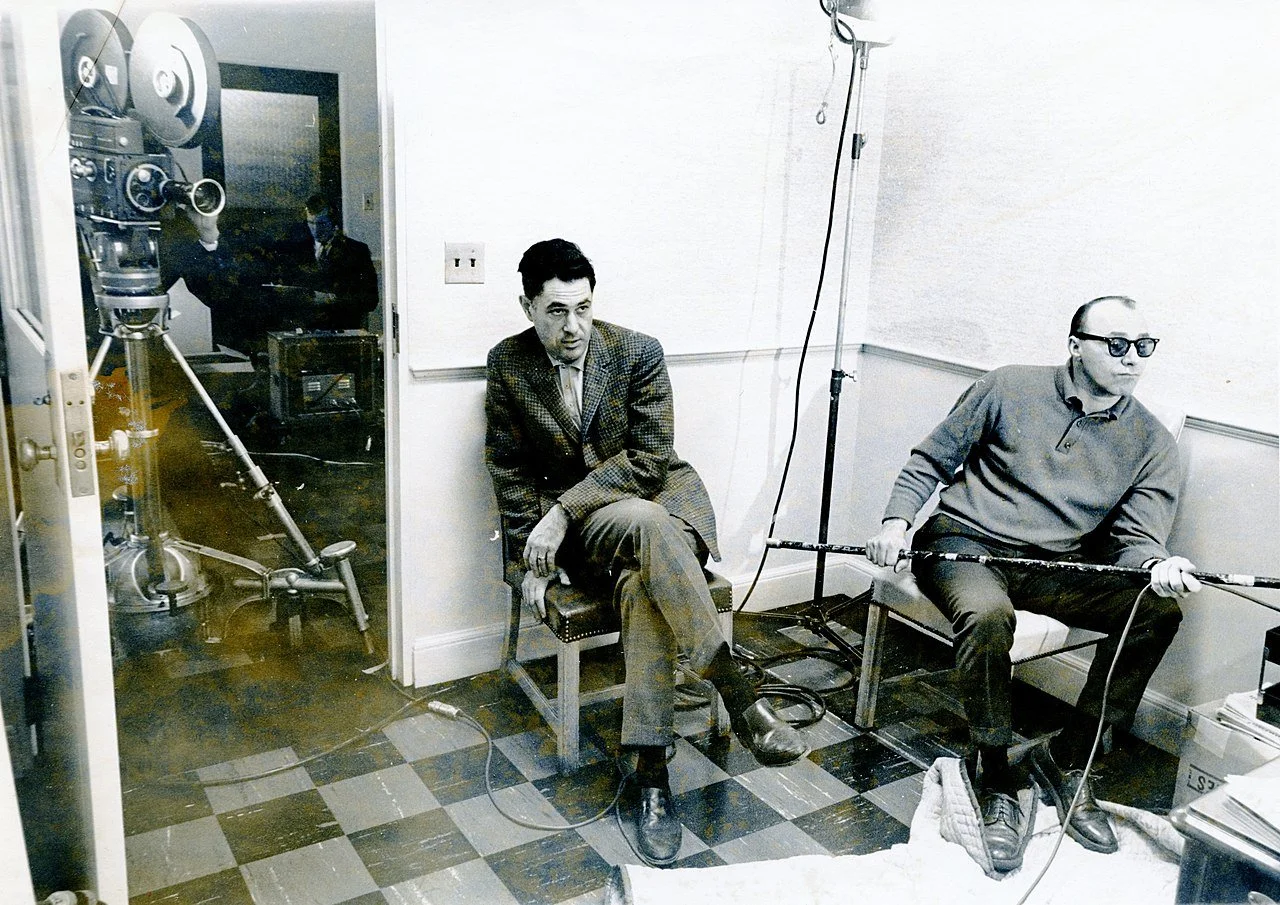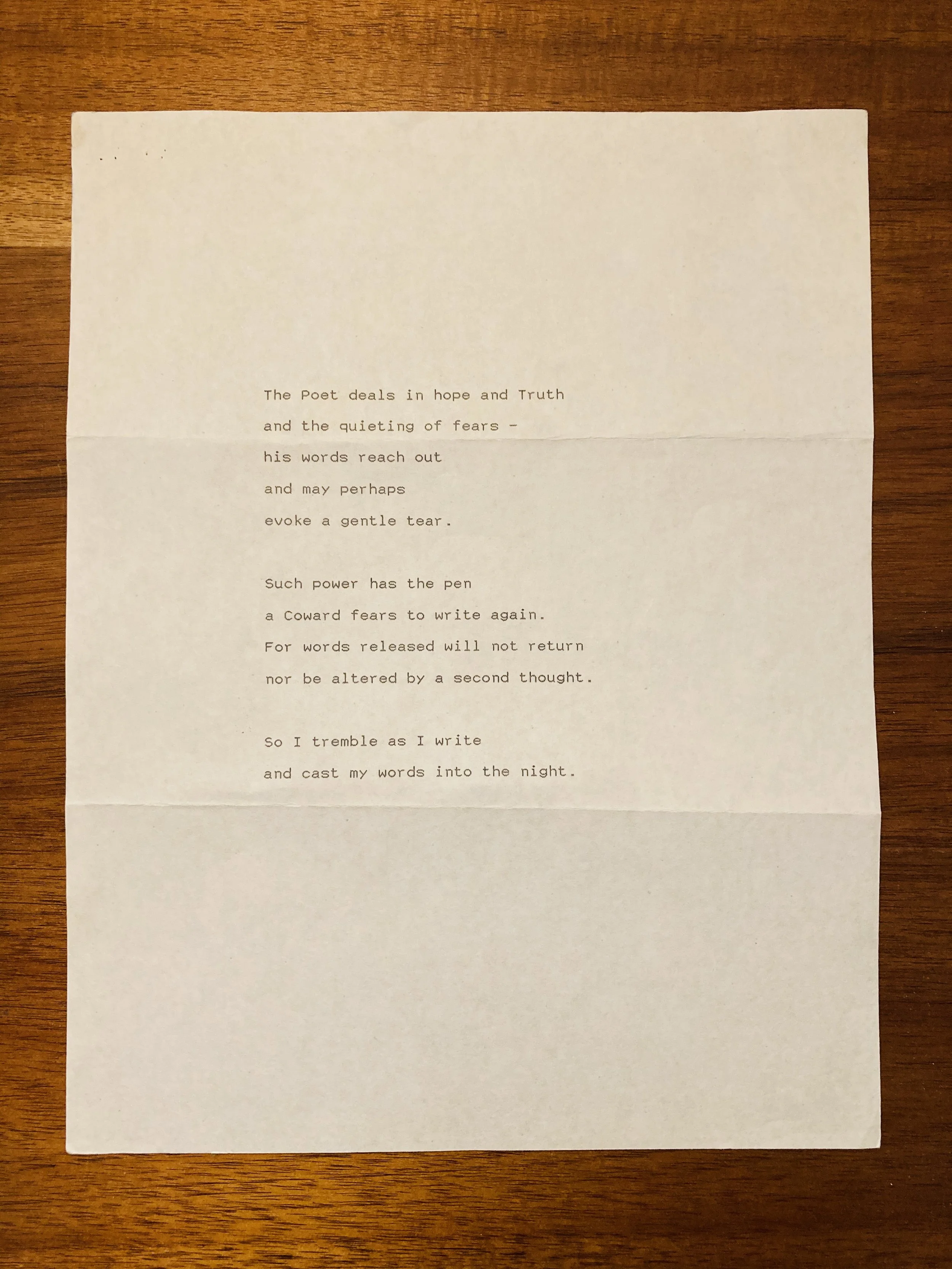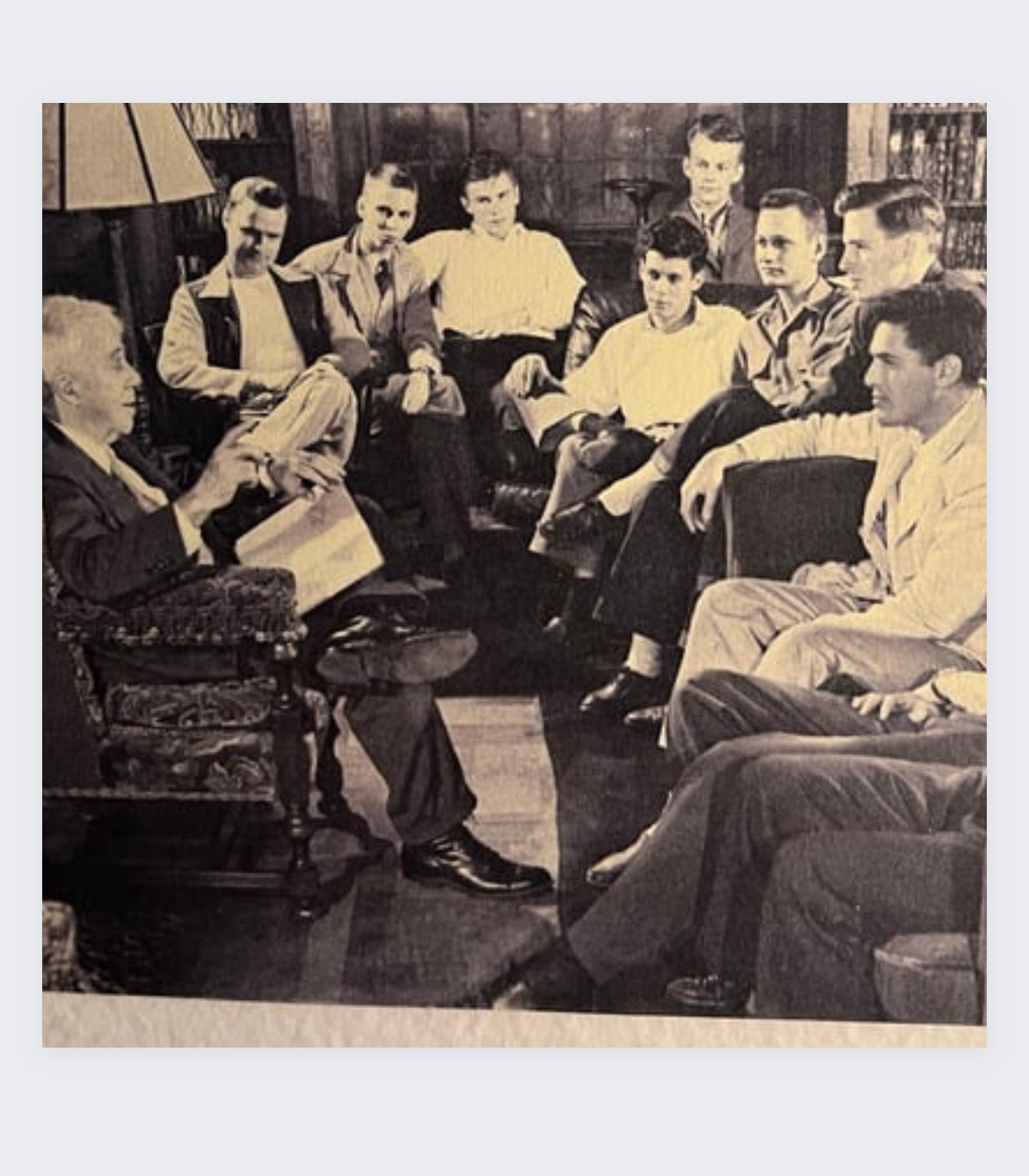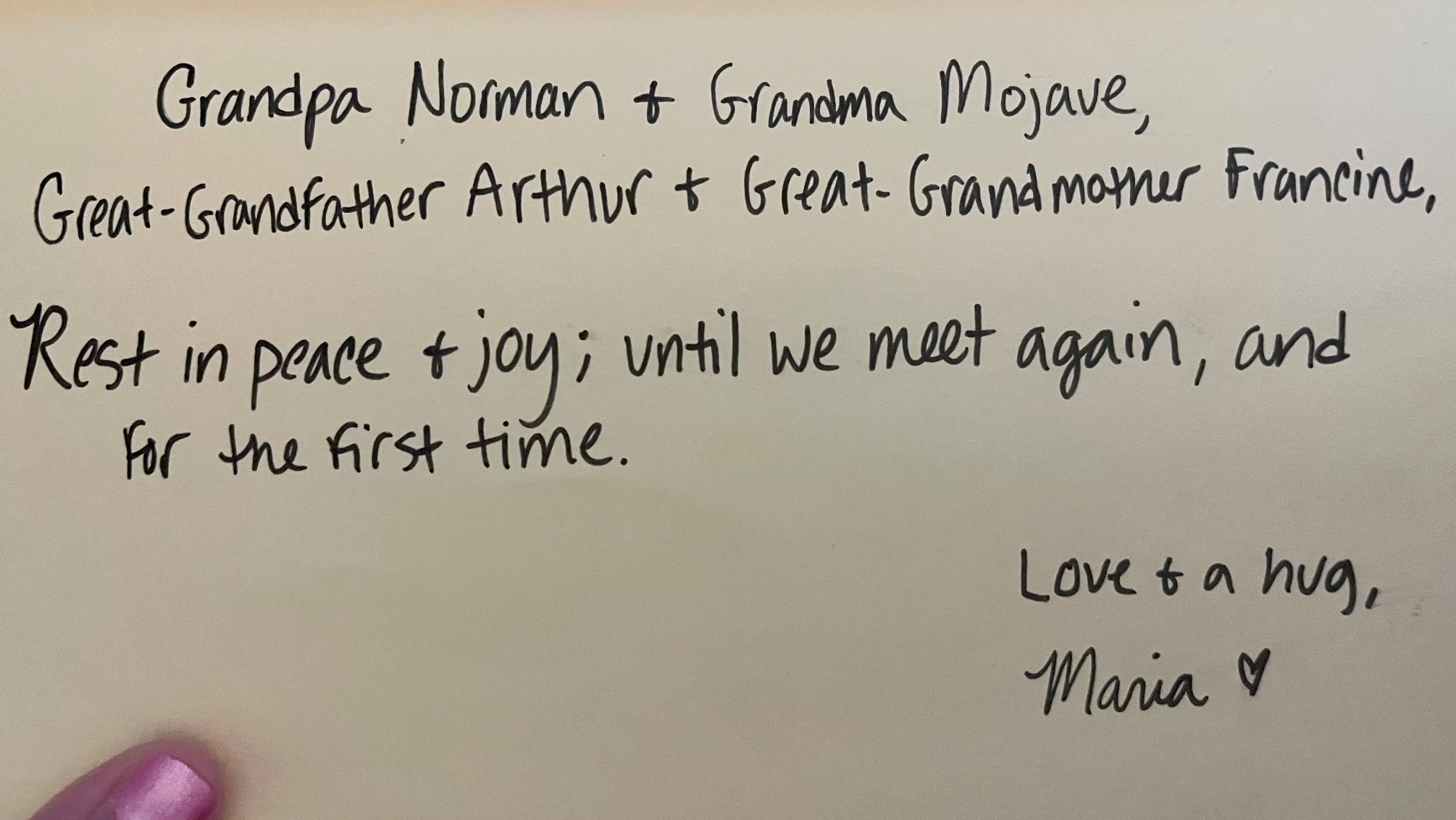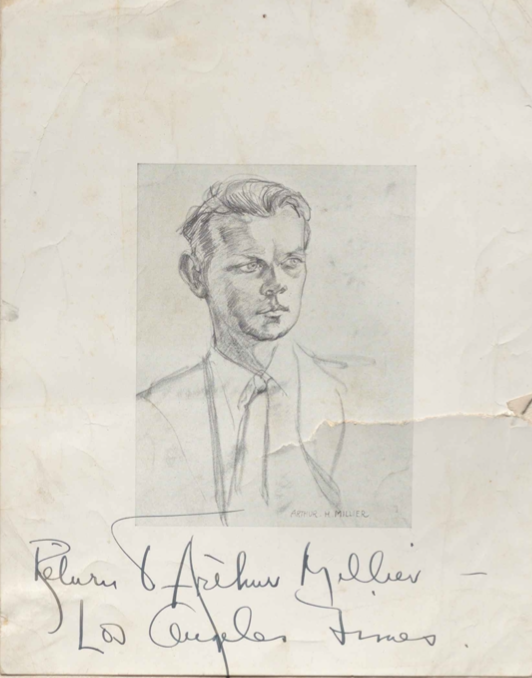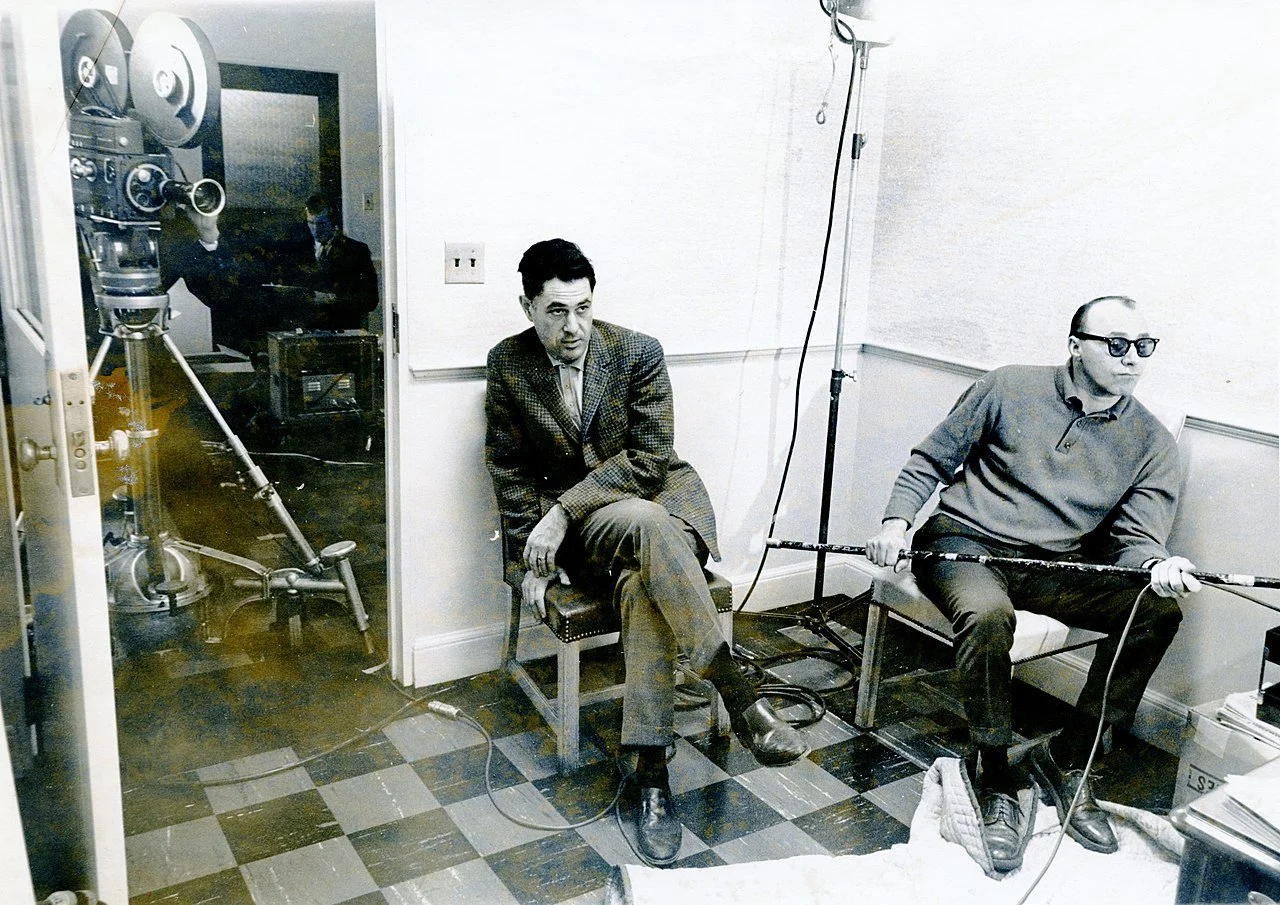
Legacy, lineage; what does it all mean?
PRAISE FOR “THE POET”
"Maria Weissman’s 'The Poet' captivates with its heartfelt storytelling and stunning vocals... an unforgettable experience." - Cage Riot Music Blog
•
"Maria Weissman’s soundscapes arrest your senses and move your soul with the sheer magnificence of her vocals and the emotiveness of the musical backdrop… It is a rare and rousing sonic sight, one that will be etched in your mind for a long time." - Lost in the Manor
•
"'The Poet' by Maria Weissman is a hauntingly intimate and emotional piece that tributes personal history, profound artistic expression, and explores literary legacy." - Illustrate Magazine
•
"Maria Weissman’s 'The Poet' captivates with its heartfelt storytelling and stunning vocals... an unforgettable experience." - Cage Riot Music Blog • "Maria Weissman’s soundscapes arrest your senses and move your soul with the sheer magnificence of her vocals and the emotiveness of the musical backdrop… It is a rare and rousing sonic sight, one that will be etched in your mind for a long time." - Lost in the Manor • "'The Poet' by Maria Weissman is a hauntingly intimate and emotional piece that tributes personal history, profound artistic expression, and explores literary legacy." - Illustrate Magazine •
Part I.
Legacy, lineage; what does it all mean?
I stared at a lock of my grandmother’s hair tucked into an etching by my great-grandfather announcing her birth in 1926. The number of historical family items I was seeing for the first time astounded me; photos of her wedding to my grandfather, telegrams announcing the birth of my father, and countless priceless family photos, etchings, even sheet music compositions.
Priceless is in fact the wrong word to use, as indeed there was a price. You see, I was not sitting in a family member’s home rummaging through this. Rather, I had made an appointment at Claremont University’s Special Collections where I discovered, on a whim in 2021, that my great-grandfather, Arthur Millier’s, personal archive resides. Priceless artifacts for me, perhaps, but I could also see the price at which the University purchased this all.
PRAISE FOR “THE POET”
"With lush backing vocalisations underpinning her voice as it takes flight, Maria crafts a truly dazzling sound that’s at once lofty and intimate." - Plastic Magazine
•
“This track has been on repeat for me… it’s not just a song, it’s a tribute to family, art, and legacy, making it feel like an emotional journey every time you listen.” – Beach House Mag
•
"The stripped-back approach of the song reminds one of well-known musicians who are noted for fusing deep lyrical content with folk traditions: Joni Mitchell and Sufjan Stevens." - Sistra
•
"With lush backing vocalisations underpinning her voice as it takes flight, Maria crafts a truly dazzling sound that’s at once lofty and intimate." - Plastic Magazine • “This track has been on repeat for me… it’s not just a song, it’s a tribute to family, art, and legacy, making it feel like an emotional journey every time you listen.” – Beach House Mag • "The stripped-back approach of the song reminds one of well-known musicians who are noted for fusing deep lyrical content with folk traditions: Joni Mitchell and Sufjan Stevens." - Sistra •
A strange feeling, indeed.
In addition to seeing the monetary value into the holding of these items, tucked away, untouched, unseen by most, I was in fact seeing for the first time these snapshots of togetherness, of union, of history coming together in what would eventually create me. By the time I came along, everyone and everything was divorced, and so very divided. But here, in these pages and photos, there was hope. There was novelty. There was togetherness. A union of creativity.
A cascade of photos spanning decades in Southern California; the various stages of life of my artist and art critic great-grandfather, Arthur Millier, and his opera singer daughter, my grandmother, Mojave. My grandfather, Norman Weissman, a writer and director from New York then enters the frame. Mojave & Norman’s wedding announcement from New York, New York. Together, they all rest in the pages of those archives, as once they did in life, before explosively falling apart.
PRAISE FOR “THE POET”
“In ‘The Poet,’ Maria Weissman showcases her mesmerizing talent. Her vocal delivery exudes introspection and intimacy, inviting listeners to delve deeper into the emotional core of the song.” – EuphonyBlog
•
"This song is nothing short of magical, a true aristocracy of lyricism and performance." - Cage Riot Music Blog
•
"Her vocals start breathy and tender, building into powerful, belting moments with a vibrato... reminding you that in softness lies strength." - Illustrate Magazine
•
“In ‘The Poet,’ Maria Weissman showcases her mesmerizing talent. Her vocal delivery exudes introspection and intimacy, inviting listeners to delve deeper into the emotional core of the song.” – EuphonyBlog • "This song is nothing short of magical, a true aristocracy of lyricism and performance." - Cage Riot Music Blog • "Her vocals start breathy and tender, building into powerful, belting moments with a vibrato... reminding you that in softness lies strength." - Illustrate Magazine •
Part II.
“The Poet” is another snapshot in time. My grandfather, Norman, was a prolific writer and director who initially wanted to be a poet, until deciding at Dartmouth College after taking a class with Robert Frost that he simply wasn’t good enough. To me, Grandpa Norman was always The Writer, and a person with tremendous self-esteem and a long career, so it seemed unfathomable to me that he could have ever felt this way. But, alas, this is another universal touchstone for most creatives.
When we were in lockdown, I asked him about his poetry, and if he’d be interested in collaborating with me on a songwriting project. A bicoastal and intergenerational collaboration, as he was living in Brookline, MA at this point while I was in Los Angeles. He immediately said yes, and sent me three typewritten poems from his collection. “The Poet” is the first one, which I immediately started setting to vocals and piano.
And I think that’s art, and lineage, and legacy in a nutshell.
Art, and music, and writing, all creative endeavors really, are these bits of beauty, sometimes providing you with recognition and compensation, sometimes just disregard and debt, but always, always, always they are really just placeholders and rough approximations for the love and connection we all so universally value.
Special and beautiful, but, ultimately, absolutely nothing in comparison to a warm hug from the person behind the inspiration.
I had trouble completing this project, because he started dying of untreatable cancer when I was toward the end of it. I didn’t want to face any of it. It felt like finishing it would mean admitting he was going to be gone soon, too. As with all divine timing, though, I did manage to finish the rough recordings the morning before he passed. My family was able to play it for him as he left this plane and entered the next.
He’s no longer here, and I have something beautiful that we created together, and I’m grateful. But I’d rather him than the music.
PRAISE FOR “THE POET”
“Maria Weissman's voice is rich and emotional, and is distinguished by its ability to convey deep feelings. Her vocal technique is impeccable, with fluid and captivating singing lines that blend harmoniously with the piano chords. This duet between Maria's voice and the piano creates an atmosphere that is both delicate and powerful, capturing the very essence of the song.” – Iggy Magazine
•
"'The Poet' stands as both a musical homage to Weissman’s ancestors and a reflection on the enduring nature of art itself." - The Independent Spirits
•
“'The Poet' isn’t necessarily dark, but it is weighty with raw emotion captured as a fragile delicacy amidst full-bodied charm. Interestingly, it is this merging of darkness and light that grips at your heart, makes you smile and encapsulates the unique theme of love in 'The Poet.’ - The Other Side Reviews
•
“Maria Weissman's voice is rich and emotional, and is distinguished by its ability to convey deep feelings. Her vocal technique is impeccable, with fluid and captivating singing lines that blend harmoniously with the piano chords. This duet between Maria's voice and the piano creates an atmosphere that is both delicate and powerful, capturing the very essence of the song.” – Iggy Magazine • "'The Poet' stands as both a musical homage to Weissman’s ancestors and a reflection on the enduring nature of art itself." - The Independent Spirits • “'The Poet' isn’t necessarily dark, but it is weighty with raw emotion captured as a fragile delicacy amidst full-bodied charm. Interestingly, it is this merging of darkness and light that grips at your heart, makes you smile and encapsulates the unique theme of love in 'The Poet.’ - The Other Side Reviews •
The Poet
Music
Maria Weissman
Lyrics
Norman Weissman
Vocals, Piano
Maria Weissman
PRAISE FOR “THE POET”





